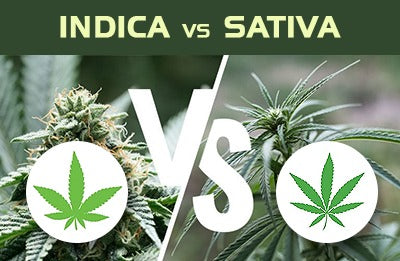Navigating CBD Use at Work: What You Need to Know
Introduction
CBD, short for cannabidiol, is a compound found in the cannabis plant that has gained significant attention in recent years. Unlike its cousin THC, CBD does not produce a psychoactive high and is legal in many parts of the world.
While research on the benefits of CBD is still ongoing, many people have reported using it to alleviate symptoms of anxiety, depression, and chronic pain. As a result, CBD has become a popular topic of discussion both in and out of the workplace.
Is CBD Legal?
While CBD is legal on the federal level, there are still some restrictions and variations in state laws. Employers should be aware of these laws and how they may impact drug testing policies and employee use of CBD products.
Industries such as healthcare and finance may have stricter policies regarding CBD use due to concerns about impairment and regulatory compliance.
Is CBD intoxicating?
No, CBD (cannabidiol) is not intoxicating. Unlike THC (tetrahydrocannabinol), which is another compound found in cannabis, CBD does not typically produce psychoactive effects or alter your state of mind. In other words, it does not cause a "high" or intoxication.

CBD interacts with the endocannabinoid system in the body, which regulates various physiological functions such as mood, pain sensation, and sleep. It is believed to have potential therapeutic benefits without the mind-altering effects associated with THC.
It's important to note that while CBD itself is not intoxicating, some CBD products may contain trace amounts of THC. However, the THC levels are typically very low (legally required to be below 0.3% in the United States for hemp-derived CBD products).
How Does CBD Affect Your Work?
CBD has been shown to have a positive impact on work performance by increasing focus and reducing anxiety. This can lead to better productivity and overall job satisfaction. Additionally, CBD has been found to improve sleep quality, which can have a significant impact on daytime alertness and cognitive function.
However, it's important to note that CBD affects everyone differently, and there are situations where it may not be helpful or even harmful in the workplace. For example, if an employee operates heavy machinery or performs tasks that require quick reflexes, CBD may impair their ability to perform these tasks effectively. It's also important to consider any potential drug testing policies in the workplace and how CBD use may affect those results.

CBD at work, there are several considerations to keep in mind. In this article, we will explore the topic of CBD use in the workplace, taking into account legal aspects, company policies, and personal factors.
-
Understanding Legal Status: The legal status of CBD varies across jurisdictions. Before considering CBD use at work, familiarize yourself with the laws and regulations in your specific location. Some countries or regions may permit CBD products, while others may have restrictions or prohibitions in place.
-
Company Policies: Each workplace may have different policies regarding substance use, including CBD. Review your company's policies, employee handbook, or consult with the HR department to understand their stance on CBD use. Some employers may have a zero-tolerance policy for any cannabis-related products, while others may allow CBD use under certain conditions.
-
Drug Testing: Routine drug testing is common in many workplaces. Although CBD itself is not typically screened for, it's crucial to consider the THC content in the CBD products you choose. Some CBD products may contain trace amounts of THC, which could potentially result in a positive drug test. Opt for CBD products labeled as THC-free or broad-spectrum to minimize the risk of THC detection.
-
Safety and Performance: While CBD is generally considered to have a low risk of impairing cognitive function, individual responses to substances can vary. If your work involves tasks that require full alertness, such as operating machinery or driving, it's important to assess how CBD affects you personally. Start with a low dose of CBD outside of work hours to gauge its effects before considering CBD use at work.
-
Open Communication: If you're considering CBD use at work and are unsure about your employer's policies or legal obligations, it's advisable to have an open conversation with your HR department or seek legal counsel. They can provide clarity on the specific regulations applicable to your situation and guide you in making informed decisions.
CBD Dosage and Timing
Determining the right dosage of CBD can be tricky, as there is no one-size-fits-all answer. Factors such as body weight, metabolism, and the condition being treated all play a role in determining the appropriate dosage. It's best to start with a low dose and gradually increase until you achieve the desired effects.
In terms of timing, it's important to consider the type of product you're using. For example, if you're using a CBD tincture, it's best to take it sublingually (under the tongue) for faster absorption. If you're using a CBD edible or capsule, it may take longer to feel the effects, so plan accordingly. Additionally, some people find that taking CBD in the evening helps promote relaxation and better sleep.
What CBD products can you use and not use at work?
When considering CBD products for use at work, it's important to choose ones that align with legal regulations, company policies, and your specific needs. Here are some CBD products that you may consider using or avoiding at work:
CBD Products That May Be Suitable for Work:
-
CBD Isolate Products: CBD isolate is a pure form of CBD that does not contain other cannabinoids or THC. Since it typically contains no THC, it carries a lower risk of triggering a positive drug test. However, always check the product's lab reports to ensure it is truly THC-free.
-
Broad-Spectrum CBD Products: Broad-spectrum CBD contains CBD and other cannabinoids found in the cannabis plant, excluding THC. These products may be a suitable choice for work since they offer potential benefits from various cannabinoids while eliminating THC content.
-
Topical CBD Products: CBD-infused creams, lotions, or balms are designed to be applied directly to the skin. Since they are not ingested, the risk of CBD reaching levels that could impair cognitive function is low. However, be cautious about scents or fragrances that could be bothersome to colleagues.
CBD Products to Approach with Caution or Avoid at Work:
-
Full-Spectrum CBD Products: Full-spectrum CBD contains CBD, THC, and other cannabinoids. While the THC levels are legally required to be below 0.3% in the United States, there is still a slight risk of THC showing up on a drug test. If your workplace has strict zero-tolerance policies for THC, it's advisable to avoid full-spectrum CBD.
-
Edible CBD Products: Edibles, such as CBD gummies, chocolates, or beverages, are ingested and metabolized by the body. These products can take longer to take effect but have the potential to produce more systemic effects. Consider the onset time and duration of effects to ensure they don't interfere with your work responsibilities.
-
CBD Vape Products: Vaping CBD involves inhaling vapors, which can provide fast effects. However, due to the potential for disruption in the workplace and concerns about second-hand vapor, it is generally advisable to avoid vaping CBD at work.
Conclusion
In conclusion, CBD has become a popular topic of discussion in the workplace due to its potential benefits for work performance and overall well-being. While the legal status of CBD can vary by industry and location, it's important for employers to understand the potential impact of drug testing and CBD use policies on their employees.
For those interested in incorporating CBD into their daily routine, it's important to determine the right dosage and timing for maximum effectiveness. It's also important to use CBD responsibly, with consideration for potential side effects and interactions with other medications or supplements.
We encourage further research and discussion on the topic of CBD and working, as there is still much to learn about its potential benefits and risks.








